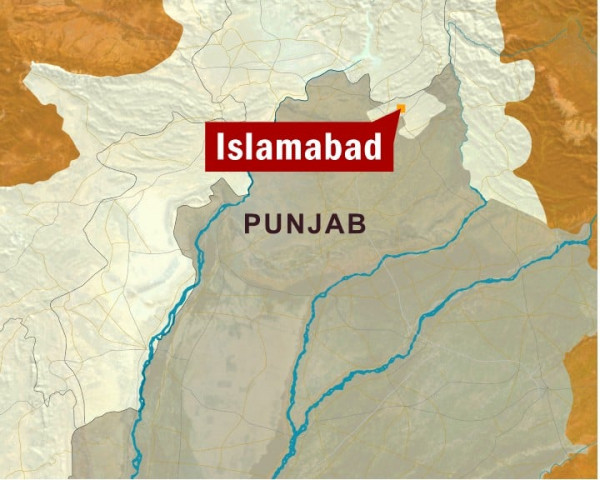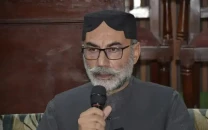Irsa takes a U-turn on canal closure decision

It didn’t take the authority longer to backtrack on its Wednesday’s decision as it ordered opening of the CJ canal, stipulating provision of 15,000 cusecs additional water to Punjab. This takes the province’s share to 135,000 cusecs.
An insider told The Express Tribune that Punjab’s strong reaction to the closure of the CJ canal jolted the highest office in Islamabad which, in turn, pressured the Irsa chairman to reverse the authority’s decision. He said the reaction was so intense that there was a revolt-like situation within the Punjab wing of the PPP.
The insider said that Irsa succumbed to the political pressure and, in an unprecedented move, sent a copy of its decision to the Punjab Assembly within hours. The Punjab government is facing the opposition’s tongue-lashing over the issue in the provincial legislature. In Thursday’s session, for instance, an opposition leader Chaudhry Zaheerud Din taunted the Shahbaz Sharif-led government that in his party’s era the CJ canal was not closed for a day. But, he pursued, in the present government’s time the canal “is closed again and again”.
Punjab has taken a stance that the CJ link canal closure was adversely affecting the crops sown over 3 million acres of land in the southern districts. It said the when every province was getting sufficient water due to better flows in the rivers “then why the province was subject to injustice”.
Irsa chairman Raqeeb Khan on Wednesday announced that the watchdog had decided to increase discharges from Chashma Barrage up to 285,000 cusecs with a primary aim of meeting the water needs of Balochistan, which was not getting its full water quota of 13.000 cusecs.
He had said that the additional discharge would record at downstream Guddu Barrage to the level of 155,000 cusecs which would facilitate release of 135,000 cusecs of water at Sukkur Barrage to meet the needs of Balochistan and Sindh.
Raqeeb Khan had said the additional water released from Chasma Barrage would take a minimum of three days to reach Sukkur Barrage. He said after recording 135,000 cusecs flows at Sukkur Barrage the CJ canal would be opened.
The Irsa chief did not provide an answer to the question as to how the additional water would reach Guddu downstream in less than 24 hours which, according to its own calculations, takes at least 72 hours.
“In order to fulfill the water requirements of Sindh and Balochistan the required water should reach Sukkur Barrage and should stay there to maintain the necessary flows to provide the required quota to Balochistan,” said Fazalullah Qureshi, an independent expert on water and energy issues.
He proposed that the water watchdog should hold a meeting after a few days to gauge whether the required water was available at Sukkur and if not then the CJ canal should again be closed.
An official of the water and power ministry said that the decision would adversely impact on inter-provincial harmony and it would also malign the image of politicians who played to the gallery instead of tackling the issue purely on technical grounds.
He said it was also a discredit to the federal government, which remained unable to amicably resolve the dispute.
In Punjab Assembly, the debate on the issue continued. One opposition leader charged that the Shahbaz Sharif government could not plead the case with the Centre “as he is indebted to the prime minister and the president”. He said the province had become bankrupt “and a debtor cannot seek his rights from the creditor”. The opposition also staged a walkout over the issue.
Published in The Express Tribune, July 16th, 2010.



















COMMENTS
Comments are moderated and generally will be posted if they are on-topic and not abusive.
For more information, please see our Comments FAQ